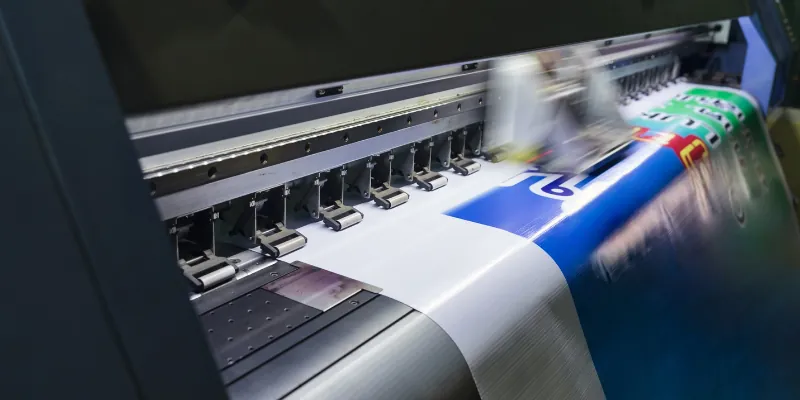Applications of Printers Transforming Ideas into Reality
Published: 26 Apr 2025
Printers are an essential part of both personal and professional life. Every year, businesses print billions of documents, from contracts to marketing materials. Schools, hospitals, and industries also rely on printers for everyday tasks. But did you know that printers go beyond just printing papers? From creating 3D models to manufacturing prototypes, the applications of printers are vast and diverse.
Applications of Printers
1. Home and Personal Use
Printers at home help with daily tasks, including:
- Printing school assignments, essays, and study materials.
- Creating hard copies of bills, forms, and personal documents.
- Printing family photos, greeting cards, and invitations.
- Scanning, copying, and printing important paperwork.
- Printing craft and DIY projects like stickers or labels.
2. Office and Business Use
Printers are widely used in offices for business operations, such as:
- Printing contracts, invoices, and financial reports.
- Creating business cards, letterheads, and marketing materials.
- Scanning and printing legal documents for record-keeping.
- Producing flyers, posters, and promotional materials.
- Printing employee handbooks, training materials, and manuals.

3. Education Sector
Schools, colleges, and universities depend on printers for academic needs:
- Printing study materials, worksheets, and lesson plans.
- Generating report cards, certificates, and admission forms.
- Printing school event posters, notices, and banners.
- Producing student ID cards and library cards.
- Scanning and printing old records, answer sheets, and notes.

4. Healthcare Industry
Hospitals, clinics, and pharmacies use printers for medical documentation:
- Printing patient records, prescriptions, and test reports.
- Generating labels for medicines, blood samples, and medical equipment.
- Printing X-ray and MRI scan reports for doctors.
- Producing hospital ID cards for staff and patients.
- Printing billing invoices and insurance documents.
5. Graphic Design and Advertising
The advertising and creative industries rely on high-quality printing for promotional materials:
- Printing posters, banners, and billboards for marketing campaigns.
- Producing business cards, flyers, and brochures.
- Creating custom stickers, labels, and packaging materials.
- Printing T-shirt designs, mugs, and personalized gifts.
- Producing photo albums, greeting cards, and wedding invitations.

6. Publishing Industry
The publishing industry depends on printers for mass production:
- Printing books, newspapers, and magazines.
- Producing training manuals, research papers, and guides.
- Printing journals and conference proceedings.
- Printing educational textbooks for schools and colleges.
- Creating personalized or self-published books.
7. Government and Legal Work
Government offices and law firms use printers for official work:
- Printing legal contracts, affidavits, and agreements.
- Producing tax forms, property documents, and financial records.
- Generating ID cards, passports, and voter registration forms.
- Printing government circulars, notifications, and public notices.
- Printing court orders and case files for legal proceedings.
8. Industrial and Manufacturing Use
Factories and industries use printers in production and logistics:
- Printing product labels, packaging, and barcodes.
- Producing shipping documents, receipts, and invoices.
- Printing technical manuals and safety guidelines.
- Creating QR codes for easy scanning and tracking.
- Printing fabric patterns and designs in textile industries.
9. 3D Printing Applications
3D printing is revolutionizing industries with innovative applications:
- Creating prototypes and models for product testing.
- Manufacturing medical implants, prosthetics, and dental crowns.
- Producing customized phone cases, home decor, and toys.
- Creating mechanical parts and spare tools for machines.
- Developing fashion accessories, jewelry, and footwear.
Benefits of Printers
1. Convenience and Efficiency
Printers save time by allowing users to print documents instantly. Instead of going to a print shop, you can print what you need at home or in the office. This makes daily tasks easier and more efficient.
2. Cost-Effective for Bulk Printing
Printing large quantities of documents in-house is much cheaper than outsourcing. Businesses save money by printing their reports, brochures, and flyers. Schools and universities also benefit from affordable bulk printing.
3. Customization and Flexibility
Printers allow you to create personalized items like invitations, business cards, and marketing materials. 3D printers even let you design and print custom objects. This level of flexibility is useful for both individuals and businesses.
4. Digital to Physical Conversion
Printers turn digital content into tangible materials like books, documents, and photographs. This is especially helpful for important documents that need to be stored in physical form. It also helps in creating hard copies for offline use.
5. Essential for Various Industries
Printers play a key role in sectors like healthcare, education, and manufacturing. They help businesses operate smoothly by printing invoices, reports, and advertisements. Industries also use 3D printers to create innovative products.
For home use, an inkjet printer is a great choice because it prints in color and is affordable. If you print a lot of black-and-white documents, a laser printer might be a better option. Consider an all-in-one printer if you also need scanning and copying features.
Think about what you’ll print most often. If you need high-quality color prints, go for an inkjet printer. If you need fast and cost-effective printing, a laser printer is the best choice.
3D printers are used to create prototypes, medical implants, custom tools, and even fashion items. They help industries design and test products quickly. People also use them for personal projects like making toys and home decor.
Use economy mode for everyday printing to save ink. Consider refilling cartridges instead of buying new ones. If you print a lot, a laser printer with high-yield toner can be more cost-effective in the long run.
Clean your printer every few months to prevent paper jams and poor print quality. Wipe the outside, clean the print heads (for inkjet printers), and remove dust from inside. Keeping it covered when not in use also helps.
Yes! Most modern printers support wireless printing through apps like AirPrint (Apple) or Google Cloud Print. You just need to connect your phone and printer to the same Wi-Fi network.
It depends on your needs! Laser printers are better for fast, high-volume black-and-white printing. Inkjet printers are best for color and photo printing but can be slower.
First, check if your ink or toner is low. Try cleaning the print heads (for inkjet printers) or checking for clogged nozzles. Restarting the printer can also fix minor issues.
Yes, if you print documents, schoolwork, or creative projects often. Having a printer at home saves time and money compared to print shops. It’s also useful for emergency situations when you need quick prints.
A multi-function laser printer is great for small businesses because it prints, scans, and copies quickly. If you need high-quality color prints, consider a business-grade inkjet printer. Look for a model with low-cost ink or toner to save money.
Conclusion
So guys, in this article, we’ve covered Applications of Printers in detail. Choosing the right printer depends on your needs, whether it’s for personal use, business, or industry. For everyday tasks, an inkjet printer works great, but if you need high-speed, cost-effective printing, go for a laser printer. If you’re curious about how to maintain your printer for long-term efficiency, check out our other guides. And don’t forget to share this article with anyone looking to buy a printer!

- Be Respectful
- Stay Relevant
- Stay Positive
- True Feedback
- Encourage Discussion
- Avoid Spamming
- No Fake News
- Don't Copy-Paste
- No Personal Attacks

- Be Respectful
- Stay Relevant
- Stay Positive
- True Feedback
- Encourage Discussion
- Avoid Spamming
- No Fake News
- Don't Copy-Paste
- No Personal Attacks
